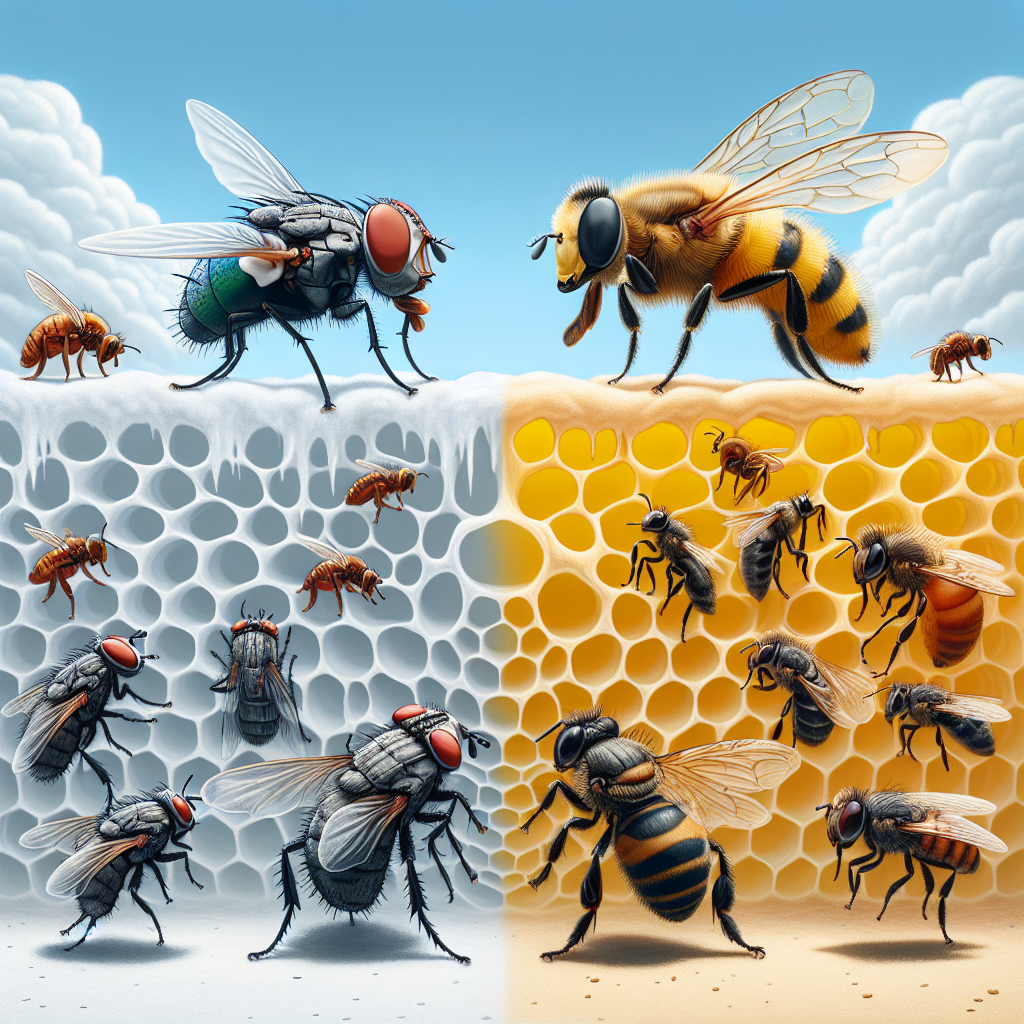.
New study led by Penn State scientists suggests that flies are increasingly at risk due to rising global temperatures. Despite their reputation as buzzing nuisances, flies serve a critical role as some of the Earth’s most prolific pollinators. The results indicate that flies are more vulnerable to warming climates than bees, since bees can handle significantly higher temperatures and occupy a broader range of habitats. This could have a significant impact on wild ecosystems and agriculture, as flies are the second most important pollinators after bees. The study found that bees can tolerate substantially warmer conditions than flies, with an average difference of 2.3 degrees Celsius in their critical thermal maximum. This highlights the need for more attention and conservation efforts towards flies, as they are also facing threats such as habitat loss, pesticides, and disease. The data collection for this study was done during COVID-19 lockdowns, with international students from Penn State and other universities conducting research in their home countries. This innovative approach allowed for the study to be completed despite travel restrictions. Overall, this study sheds light on the importance of flies as pollinators and the need to protect them in the face of climate change.

